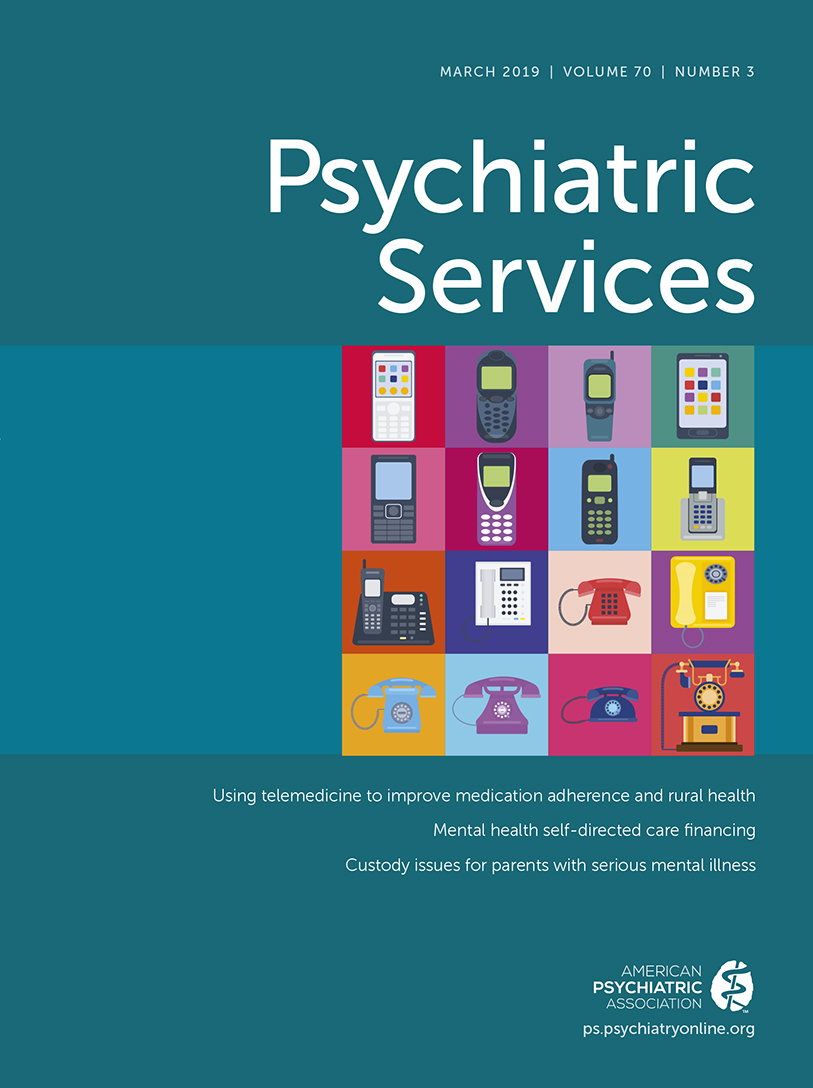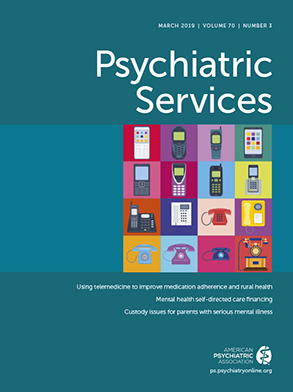In an important and provocative study reported in this issue of Psychiatric Services, Cook and colleagues detail findings stemming from a rigorous and well-powered investigation of self-directed care for adults with serious mental illness living in Texas. The investigators found significant improvements in multiple key domains, including recovery, self-esteem, coping, autonomy support, and employment and education, all at no additional cost.
Self-directed care—a policy intervention enabling Medicaid beneficiaries to directly control cash expenditures for goods and services—could be thought of as a structural actualization of key tenets of recovery-oriented, person-centered care—tenets that, as some commentators have warned, may otherwise amount to little more than well-intentioned rhetoric. In self-directed care, consumers control their purse strings and, with this control, are free to choose the goods and services they desire. Allowed this autonomy, as Cook et al.’s study documents, consumers also made the “right” choices for themselves, bettering their personal recovery and well-being compared with a matched group without such autonomy.
In regard to the specifics of the decisions that study participants made, findings are unsurprising in some ways and genuinely provocative in others. On the one hand, the peer movement has long emphasized the importance of (and consumer preferences for) peer support services while often deemphasizing pharmacotherapy. Participant choices in these areas were thus relatively predictable. On the other hand, participants’ decisions to reduce or wholly forego utilization of what would often be considered core components of community mental health and psychiatric rehabilitation—skills training, psychosocial rehabilitation, and case management—should give us more pause. Although these stock interventions were originally designed to support individuals with significant mental health challenges in the wake of deinstitutionalization, they nevertheless replicate much of the more conventional “medical model” practices. For example, they focus on the individual (and problems at the level of the individual), even when the relevant intervention targets are social and structural in nature—as in the case of social exclusion, poverty, and unemployment—while also relying heavily on the unidirectional provision of expert support and guidance. These interventions are typically undertaken with the goal of promoting empowerment, yet participants’ choices—and their demonstrated gains in perceived autonomy—raise questions about the extent to which these strategies in fact support and achieve their intended goals. Instead, we might argue that the study findings point toward a very different vision of what it means to be empowered—a vision that places control over decision making directly in the hands of consumers rather than providers and service workers.
Participants’ investment in psychotherapy is also striking. Although Cook et al. did not report motivations or the specific kinds and types of therapy participants sought, a viable interpretation is that more standard interventions (case management and skills training) both overshoot—providing excessively structured support that consumers may not want or need—and downplay the importance of facilitated opportunities to understand experiences of distress as well as discrimination, social rejection, and lost opportunities.
If this study serves as a powerful reminder of what we can learn when consumers control their everyday destinies, its implications should not be seen as limited to individual decisions about personal Medicaid expenditures. Too often, researchers and policy makers alike assume that, based on science and experience, they have arrived at the right conclusions about what consumers want and need. The easiest way to overcome the blind spots that perhaps inevitably result is to affirm and support true collaboration and joint leadership across all the domains that come to influence the services that consumers ultimately receive: mental health and welfare policy, program development, services research, and implementation efforts. By empowering peer leaders to make decisions, it seems reasonable to conjecture that some of their choices would align with the path that community mental health is already taking, while others may push us in unexpected, and perhaps initially uncomfortable, directions. And this is also, ultimately, perhaps the best shot that consumers and providers have at moving beyond ameliorative change toward something that genuinely could be called the transformation of existing systems of care.

